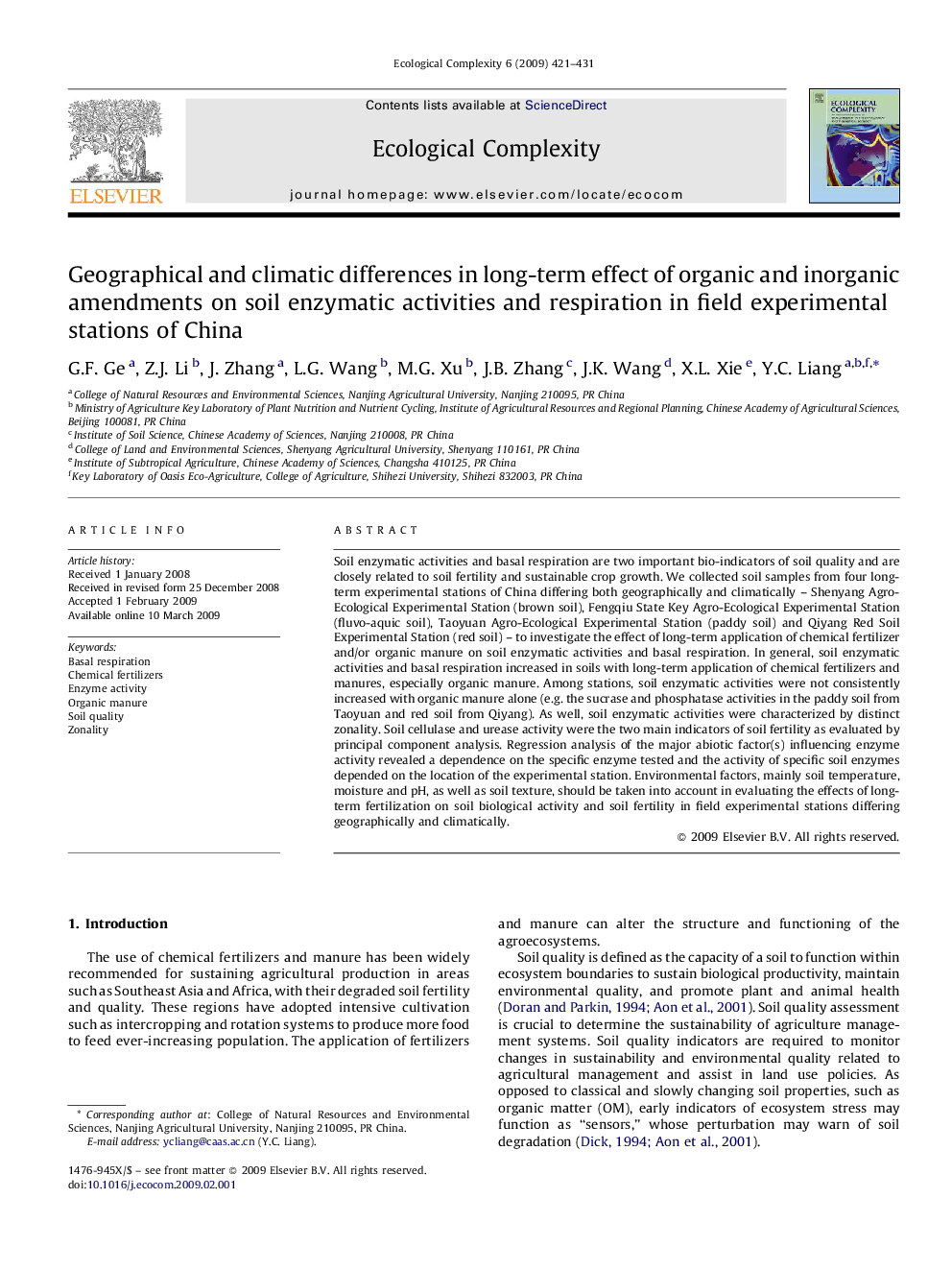| Article ID | Journal | Published Year | Pages | File Type |
|---|---|---|---|---|
| 4372662 | Ecological Complexity | 2009 | 11 Pages |
Soil enzymatic activities and basal respiration are two important bio-indicators of soil quality and are closely related to soil fertility and sustainable crop growth. We collected soil samples from four long-term experimental stations of China differing both geographically and climatically – Shenyang Agro-Ecological Experimental Station (brown soil), Fengqiu State Key Agro-Ecological Experimental Station (fluvo-aquic soil), Taoyuan Agro-Ecological Experimental Station (paddy soil) and Qiyang Red Soil Experimental Station (red soil) – to investigate the effect of long-term application of chemical fertilizer and/or organic manure on soil enzymatic activities and basal respiration. In general, soil enzymatic activities and basal respiration increased in soils with long-term application of chemical fertilizers and manures, especially organic manure. Among stations, soil enzymatic activities were not consistently increased with organic manure alone (e.g. the sucrase and phosphatase activities in the paddy soil from Taoyuan and red soil from Qiyang). As well, soil enzymatic activities were characterized by distinct zonality. Soil cellulase and urease activity were the two main indicators of soil fertility as evaluated by principal component analysis. Regression analysis of the major abiotic factor(s) influencing enzyme activity revealed a dependence on the specific enzyme tested and the activity of specific soil enzymes depended on the location of the experimental station. Environmental factors, mainly soil temperature, moisture and pH, as well as soil texture, should be taken into account in evaluating the effects of long-term fertilization on soil biological activity and soil fertility in field experimental stations differing geographically and climatically.
